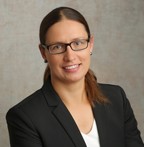Invited Speaker

Dr. Sonja Bauer
Proferssor, Faculty of Geomatics, Computer Sciences and Mathematics, Hochschule für Technik Stuttgart (University of Applied Sciences), GermanySpeech Title: Consolidating rural and water-scarce regions of emerging countries by reusing treated wastewater
Abstract: Rural areas are generally characterized by agricultural land use and a low population density. Especially, in developing and emerging countries such regions often face the challenge of rural depopulation due to a lack of employment and access to basic infrastructural facilities (e.g. secure water supply and disposal). For instance, China the most populous country in the world, with ever-increasing urbanization has to deal with this challenge. Approximately 90 % of Chinese villages have a lack of drainage channels and wastewater treatment facilities. Additionally, the effects of a worsening climate change such as increasing periods of drought will affect agricultural production. Nevertheless, China has to preserve the agricultural sector to feed its huge population. As agriculture is the greatest global water user, with 70 % of available water required for this sector, reusing wastewater for irrigation is a possibility to contribute to food safety. In this context, China has by far the highest irrigation rates with untreated wastewater. As the use of treated wastewater in agriculture benefits human health as well as environmental and economic issues, water-reuse is becoming increasingly important. However, without the necessary “wastewater, and thus reuse water producers” like housing areas, there is not enough wastewater available that can be treated and provided for irrigation. Thus, a holistic water-reuse concept for rural areas could be developed. The case study of the city of Wuwei is taken into account to develop conceivable solutions. The city is located in a water-scarce region in northwest China. The region is also famous for growing fruits, vegetables and flowers. By implementing water-reuse, for instance, agricultural crops in horticultural tunnels can be irrigated with treated municipal wastewater. This drives the agricultural sector and will offer more jobs. This leads in turn to the development of new housing areas and hinders the rural depopulation.
Biography: Prof. Dr.-Ing. Sonja Bauer received her diploma in Spatial Planning in 2009 at Technische Universität Dortmund in Germany. From 2009 to 2012 she worked as a project engineer and urban planner. She started 2012 as a research associate at Technische Universitaet Darmstadt (Department of Landmanagement), where she received her doctorate in 2016. Her research activities include beside analyses of urban planning instruments in Germany, France, and China as well as sustainable urban and rural development with a focus on water-reuse concepts for water-scarce regions in South-East Asia. From 2016 until 2019 she was responsible for the coordination of the BMBF-funded project "Water-Reuse in Industrial parks" (www.wareip.de). Since September 2019, Sonja Bauer has been a professor at the Stuttgart University of Applied Sciences, Germany, and is mainly responsible for land management.